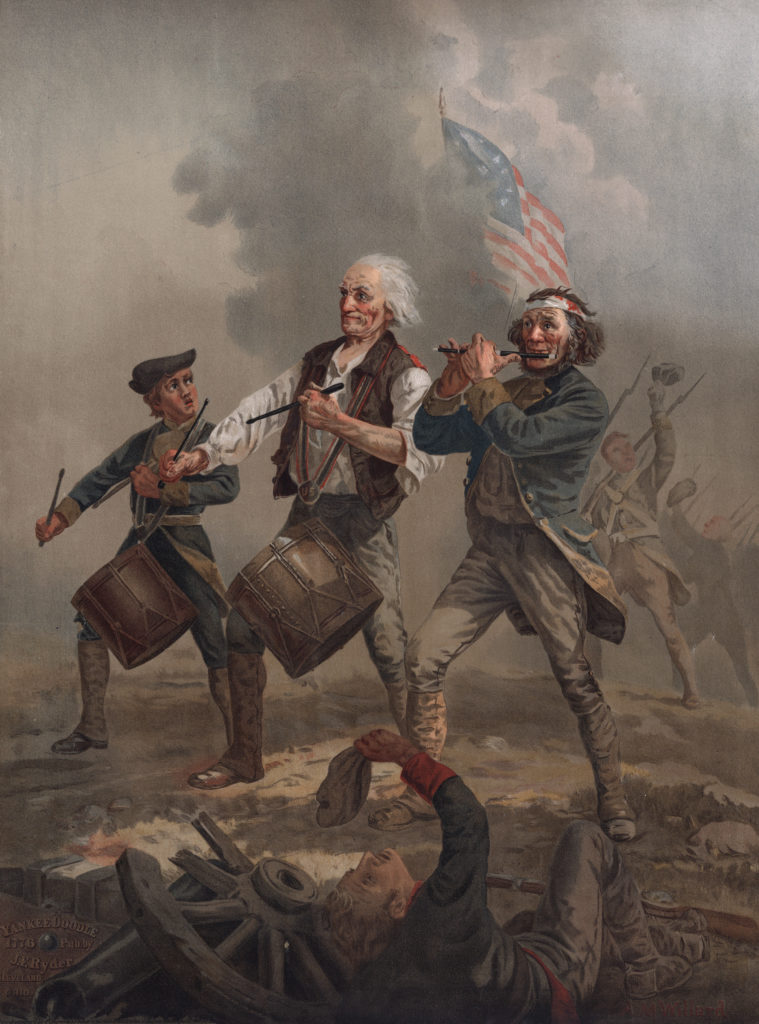American Refugees
Will the influx of blue state refugees into the heartland ruin the country or save it?
This essay originally appeared in the March-April 2024 issue of The American Conservative (here). Thanks to Instapundit (here), Real Clear Policy (here), the Ace of Spades HQ blog (here), and the Tennessee Conservative News (here and here)!

America is badly divided. Urban and coastal progressives openly loathe traditional Americans living in rural areas and “flyover country”—Hillary’s “deplorables”– and the scorn is reciprocated. In response, an exodus is underway from blue states in America, as many residents flee high-tax, crime-ridden cities plagued by homeless encampments, open-air drug dens, and toxic woke policies, seeking refuge in sensibly-governed red states such as Texas, Florida, and Tennessee. In sheer numbers, California generates the greatest volume of these domestic transplants, but the growing body of failed states losing residents also includes Illinois, New York, New Jersey, Michigan, and Minnesota.
Sadly, more and more poorly-run states seem destined—even determined–to join this ignominious list.
The exodus began at the dawn of the 21st century and accelerated in 2020 due to draconian Covid restrictions (including school shutdowns) imposed in some states on the pretense of protecting public health, and unprecedented—yet barely resisted–civil unrest in many cities unleashed by the death of George Floyd in Minneapolis. A summer of nonstop rioting, looting, and arson revealed that the veneer of civilization is deceptively thin, as was the resolve of elected officials in blue states to enforce the rule of law. Anarchy and destruction were the result.

As blue states continue to deteriorate, the exodus will grow. In an increasingly divided nation, the “big sort” (as a 2009 book labeled it) now underway may determine the future of the republic. Federalism could provide a solution to our culture war—or at least prevent the outbreak of a civil war. Roger L. Simon, himself an expat from California (“a madhouse of the woke,” he quips), now living in Nashville, has written a book, American Refugees, that he describes as “a kind of Fodor’s guide” for blue state conservatives tempted to vote with their feet. Simon, an award-winning novelist and screenwriter, and self-described former “conventional liberal” who now serves as editor-at-large of the conservative Epoch Times, provides an engaging first-person account of his unlikely odyssey.
The big question—as yet unanswered—is what effect this internal migration will have on our national culture and politics. Will the refugees from blue states relocating to red states for political reasons spread their love of freedom and traditional values, or (in Simon’s words) “pollute red states with their indelible left-wing ideology”? Simon makes some contrarian—but in my judgment, accurate—observations, and therein lies the salience of American Refugees.
Simon’s reportage covers California, Florida, Georgia, Texas, and Arizona, but focuses on Tennessee, and in particular his current stomping grounds–the fast-growing metropolis of Nashville and its surrounding suburbs. The trends Simon identifies, however, are more broadly applicable to red states generally. It is one thing for a disgruntled Californian to move to an adjacent or nearby state such as Nevada, Arizona, Oregon, or Washington (“California lite,” Simon scoffs), and another to uproot and move across the country. Simon waxes poetic about the long-distance migrants: “people looking to return to the America they had grown up in—yearning for it actually, to the extent that they would get up and trek a couple of thousand miles with their families to find it, emulating Steinbeck’s Joad family in reverse.”
In red states, newcomers from California are often met with the same reception one would accord an escapee from a leper colony. At least in small towns and less-populated counties, red state natives are instinctively wary of, if not hostile to, the wave of equity-rich “outsiders” who bid up home prices with all-cash offers. The common assumption is that refugees from blue states have something akin to cooties, and that they will infect the body politic in the host state with a contagious liberal virus. This sentiment is reflected in a 2021 headline in The Federalist: “Leftists Are Colonizing Red Towns Like Mine, And Local Republicans Are Clueless” (although the second part of the title is apt).
Simon, a keen observer since his 2018 move to Tennessee (a year before my own arrival), takes the opposite view. Simon contends, based on his interactions with blue state refugees leaving California for states such as Tennessee, that in many cases the transplants are more conservative (and certainly more engaged) than the natives, who tolerate establishment-oriented, self-professed “Republican” elected officials often holding office in those states. Simon pulls no punches in his evisceration of the “Republican-in-name-only” (or RINO) political culture evident in many red states, Tennessee included. Complacent red state natives, not (yet) having the experienced the disorienting regime change of wokeness, are surprisingly content with the RINO status quo.
Simon will earn few friends in establishment circles when he points out that blue state refugees are often disappointed upon their arrival in red states to find out that the conservative nirvana they sought in places such as Tennessee is not all they hoped and expected it to be. Yes, Tennessee has low taxes, voted for President Trump by a wide (61 percent) margin in both 2016 and 2020, and–outside of the handful of large cities–is a one-party red state. But Tennessee is hardly a hotbed of Tea Party-style conservatism. Transplants discover that the grass may be greener on the other side of the fence, but there are still weeds: Elected officials typically constitute an “old guard” devoted to servicing the chamber of commerce, grassroots activism is not the norm, conservative groups are few and largely ineffective, and the sense of urgency to take a stand is tepid to nonexistent.
For example, voter turnout is pathetically low, Tennessee is an open primary state, and—compared to Texas or Florida–the Tennessee Republican Party is weak and poorly-organized. “For some time,” Simon accurately notes, “local party organizations have acted as ineffective social clubs, headed by what seem like deliberately incompetent leaders.” Simon describes Tennessee’s state and county GOP organizations as “somewhere between useless and incompetent.” These are serious, but fixable, flaws.
Newly-arrived transplants in Tennessee, acutely aware of the peril posed by leftist policies, often find themselves acting like Paul Revere, warning the cliquish locals of the dangers of passivity and complacency. Refugees from blue states, Simon posits, instead of posing a threat to red states, are in fact “a calvary come to rescue the red states from themselves.” Simon acknowledges that many red state natives are offended by this point of view, resenting “know-it-all newcomers trying to reinvent the wheel.” If America is to be saved, however, the battle will be fought at the local level, and it is here that the blue state refugees and red state natives must learn to work together as allies.
Simon refers to the differences between transplants and natives in Tennessee as “the fitful conflict…between the sometimes ultraconservative/libertarian refugees from blue states and the GOP establishment.” Simon illustrates his thesis with a roll call of Volunteer State activists who moved to Tennessee from elsewhere, in addition to Matt Walsh and the rest of the Daily Wire crew: election integrity advocate Kathy Harms; right-leaning broadcaster (Tennessee Star Report) and journalist Michael Patrick Leahy; founder of the Tennessee Conservative website, Brandon Lewis; co-founder of The Federalist, Sean Davis; and “insurgent” founder of Tennessee Stands, Gary Humble.
The prominent exception is influential blogger and University of Tennessee law professor Glenn “InstaPundit” Reynolds, a native Tennessean to whom Simon dedicates his book.

Simon acknowledges that not all transplants from blue states are the same—and neither are all red states identical. He distinguishes between “political refugees” and people who relocate for other reasons: cheaper housing, a better job, proximity to family, or a slight change of climate or scenery. Those in the “other” category are less likely to leave their blue state political and cultural beliefs behind. For example, so many Californians relocated to Austin, Texas in order to work in Big Tech that they turned the Capital City into a demographic replica of Silicon Valley. Effectively, Austin has become a province of California, and votes accordingly. However, this has not been the case in Florida under Gov. Ron DeSantis. Fortunately, Tennessee has little in common with Austin (although Nashville hipsters have aspirations in that regard). The one reddish state Simon warns against is Georgia, due to its election shenanigans in 2020.

Can a fedora-wearing, (converted) conservative Jewish writer from New York by way of Hollywood find contentment in Tennessee—an ironic role reversal of The Beverly Hillbillies? Simon assures the reader that the answer is yes, at least so long as he can play tennis several times a week, enjoy fine dining, and find congenial companions with whom to socialize—all of which are available in Nashville. Although he claims that he will “never be a real redneck,” Simon professes to be “happier than I have ever been in Tennessee.” I concur.
Red states should embrace freedom-loving blue state refugees, “real rednecks” or not. In these tumultuous times, patriots must unite to save America.

































